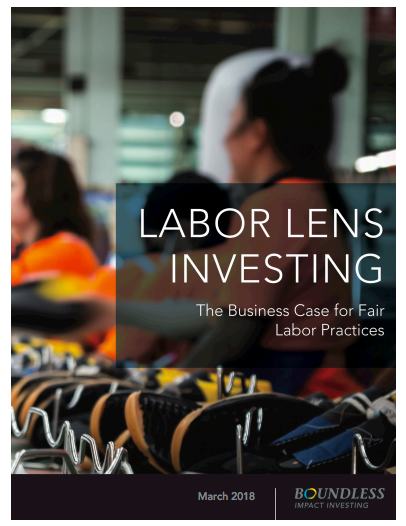
 Each year profits from forced economic exploitation top $51 billion, nearly the GDP of Croatia and more than Nike, Starbucks, or The Coca-Cola Company made last year. Traffickers exploit these workers in the shadows of the global economy, outside of the view of companies and their investors. Unfortunately for anyone with capital in global markets this means that their investments are also connected to this global crime. No company and therefore no investor is immune. Forced labor cannot be rooted out without tackling the fundamentals of how these traffickers make a profit. We must engage more holistically with the financial sector and find creative ways to unlock capital to help enable our fight.
Each year profits from forced economic exploitation top $51 billion, nearly the GDP of Croatia and more than Nike, Starbucks, or The Coca-Cola Company made last year. Traffickers exploit these workers in the shadows of the global economy, outside of the view of companies and their investors. Unfortunately for anyone with capital in global markets this means that their investments are also connected to this global crime. No company and therefore no investor is immune. Forced labor cannot be rooted out without tackling the fundamentals of how these traffickers make a profit. We must engage more holistically with the financial sector and find creative ways to unlock capital to help enable our fight.
Today, a report commissioned by The Freedom Fund and Humanity United and developed by Boundless Impact Investing was published which explores a new investment strategy—Labor Lens Investing—that assesses ways in which investors are aligning capital across asset classes with their commitment to address the labor conditions of workers in global supply chains.
This approach is based on the belief that the strategic allocation of capital will influence multinational supply chains, thereby improving labor conditions and reducing labor exploitation. Shareholder advocates have a long history of using their influence as owners to push companies to act on forced labor, including the work we’ve led through KnowTheChain. However, applying a human rights framework to investments extends beyond engaging the public market. The report highlights investment products that have been creatively engineered by a combination of labor rights, social finance, and data experts to align capital in order drive more meaningful change on labor practices.
The report features HU’s newly created Working Capital fund which is investing in emerging technology companies that are addressing labor inequality in global supply chains. Venture strategies have long been used by impact investors to help accelerate the change they want to see. The report also highlights the use of financing to help improve labor conditions. The International Finance Corporation, which delivers a range of investment and advisory services for companies operating in emerging markets, established the Global Trade Supplier Finance (GTSF) to provide working capital to help factories that demonstrate positive ethical and environmental standards, as well as meet a wide range of compliance standards, to ensure they are able to expand their businesses without negatively impacting workers.
It is encouraging that more investment products are emerging that can be used broadly to realign capital with the fair treatment of workers. For far too long the power of the financial sector to drive meaningful and lasting change has been overlooked. We commissioned this report because we wanted to better understand current efforts to align capital with the treatment of workers. This report is an important step as we continue to scale this new Labor Lens investment theme.